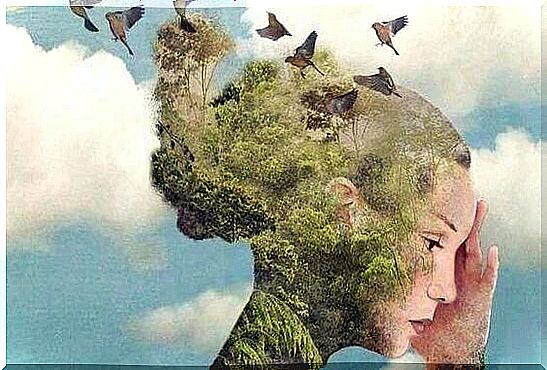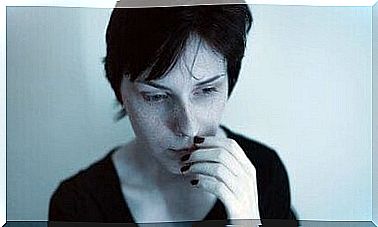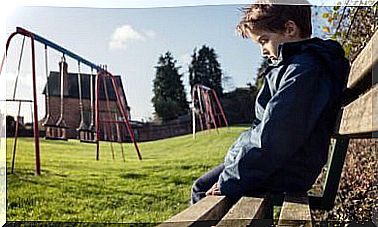To Help, It Is Sometimes Necessary Not To Intervene

If you really want to help me, keep silence, respect my space and leave me in peace. Do not tell me that I did not warn you, that I always fall into the same error, that I have no remedy for my problem… do not intensify my suffering. For once, understand that sometimes the best way to help is precisely to “not help”, show me your empathy, your understanding by staying on the sidelines, at least for today.
“ In decisive moments, the best thing you can do is make the right decision; second, it is to make the wrong decision and the worst thing is to do nothing , ”said Theodore Roosevelt. This vision undoubtedly responds to the classic approach of the political mentality, which is always afraid of immobility, of the voter who does not take sides or of the supposed ally who does not. not face its responsibilities. But President Roosevelt was wrong because doing nothing is actually a very valid option, and indeed sometimes the most appropriate.
“Any unnecessary aid is an obstacle to development.”
-María Montessori-
The biggest problem here is that in the collective unconscious, we think that lack of action or passivity is a sign that what is happening is not of interest to us. So how do you understand that sometimes it is better to stand still, not to help, to look, to be silent and to take a step to the side or back?
In psychology, it is often said that in the most complex moments, the mind encourages us to give the simplest answers, where the heuristics, the so fascinating mental shortcuts of human thought, are sometimes the most relevant. So, when we see a friend in uncertainty about a job that they must accept or not, or a brother upset because of a disappointment, we often hear an inner voice saying to us: “ Let go. the only one, leave him room to think, to decide or accept the situation. ”
Because sometimes, by depriving people of their own struggles, we rob them of a precious opportunity for learning and personal growth.

There are those who don’t need to be saved
An oriental story tells that a man once found the cocoon of a silkworm in a park. Worried about this little creature and fearing that someone might step on it, he decided to take care of it himself, putting it in a box to take care of it with patience and attention.
As he took her home, he saw something that caught his attention: the cocoon was already far advanced and there was even a hole through which the butterfly was struggling to get out. Invested in this idea of helping, he did not hesitate to take scissors and cut some parts of the cocoon to facilitate the insect’s work. His intention was noble, no doubt, but good intentions don’t always bring good results.
Because what he did not know is that nature has its own rhythms, times and untouchable principles, and worse yet, that there are processes in which any help is simply harmful. The butterfly emerged with its wings glued to its body and as our “savior” waited hopefully for them to unfurl little by little to begin to fly, the only thing he could contemplate was the little insect crawling in circles. , until death.

There are people who do not need to be saved because, quite simply, they are not in danger. There are sufferings that one must live to flourish, there, in the privacy of the cocoon, in the enveloping sweetness of sadness, in the sticky recesses of doubts and disappointments.
There are journeys that people must make in solitude, without assistance, without obligation to be saved by who systematically waves the banner of good intentions and great meaningless sacrifices.
Helping is not always necessary… but how do you know it?
María Montessori said that any unnecessary aid only hinders development. This idea undoubtedly has a lot to do with Lev Vygotsky’s concept of “”. A concept which, even if it applies primarily to the field of education, could extend to many of our environments and daily relationships.
The “” tells us that in order to improve someone’s abilities, you have to give them the right and necessary help to develop their own potentials. This implies, for example, not accepting responsibilities that are not ours and identifying the points where our help is really a stimulus for learning and to what degree.
“Help your fellow men to lift the load but don’t feel you have to take it with you.”
-Pythagoras-
We are very aware that it is not always easy to know where the limits are, where these borders are, where “doing nothing” is permissible and recommended. Because immediately, rantings on the sense of responsibility fuse, and even more when people in difficulty matter to us. Moreover, even if the brain, from a physiological point of view, does not judge, the conscience does.

So, above all, it is important to know that it is not always good to provide dedicated, constant and unlimited help. The result could be disastrous: these people could become passive, selfish and develop an iron dependence on us. The key is to warn when there is a situation of real vulnerability and to really know what that person needs.
Sometimes the best help is knowing how to listen or just “being” quietly. That the other person knows that we are there for them if they want to, that we can turn into a shoulder to cry on, a trusted support or someone who knows how to respect distances and solitudes when necessary.
We can be that ray of light that illuminates a one-off, limited and fleeting moment and then let go, to allow the person to spread their wings and stop circling. But we can also do nothing, a valid and therapeutic option in some cases.
Also read:
Images by Daría Petrelli









